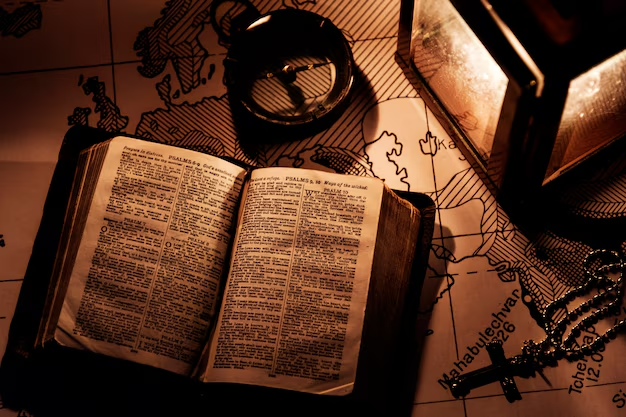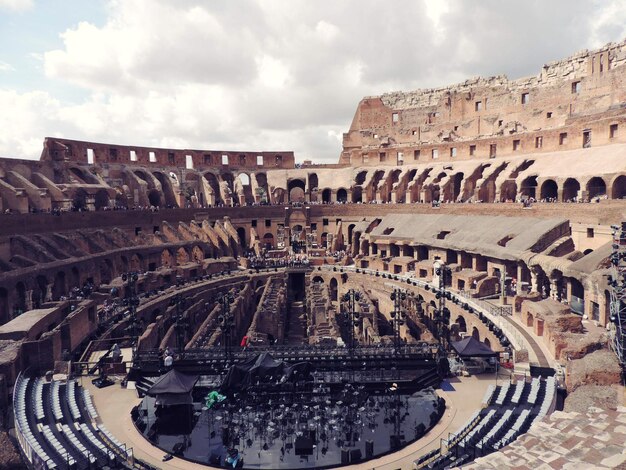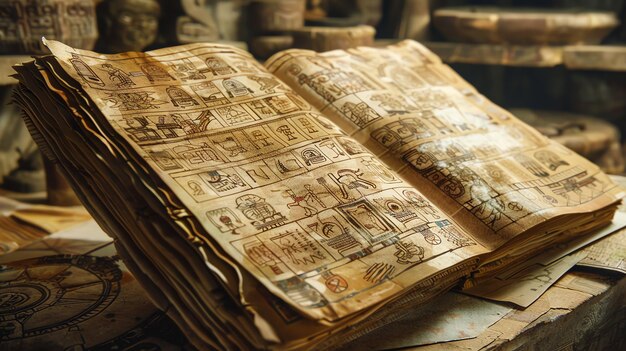
The modern world is the result of centuries of conflict, innovation, discovery, and change. Key historical events have shaped the political, social, economic, and technological landscape we know today. From the rise of powerful empires to revolutions that toppled old regimes, the world we live in now is a direct consequence of pivotal moments in history. This article takes you through some of the most influential events that helped shape the modern world, highlighting their lasting impact on global society.
1. The Fall of Constantinople (1453): The End of the Byzantine Empire
One of the most transformative events in medieval history was the fall of Constantinople, the capital of the Byzantine Empire, in 1453. After a long siege, the city was captured by the Ottoman Empire, marking the end of the Byzantine Empire, which had lasted for over a thousand years. The fall of Constantinople had profound consequences, not only for Europe and the Middle East but for the entire world.
The Ottomans’ capture of Constantinople opened up trade routes between Europe and Asia, and the city became a center of Islamic culture and commerce. The collapse of the Byzantine Empire also led to the migration of Greek scholars to Italy, sparking the Renaissance, a period of renewed interest in classical learning and the arts that would forever change European thought and culture. Additionally, it contributed to the Age of Exploration as European nations, seeking new trade routes to Asia, began their voyages of discovery.
2. The Protestant Reformation (1517): The Birth of Protestantism
In 1517, Martin Luther, a German monk, nailed his 95 Theses to the door of the Wittenberg Church, challenging the practices of the Catholic Church, particularly the sale of indulgences. Luther’s actions sparked the Protestant Reformation, a religious and political movement that led to the formation of various Protestant denominations and divided Europe along religious lines.
The Reformation not only changed the religious landscape of Europe but also had profound effects on politics and society. The movement contributed to the rise of individualism, as Luther’s teachings emphasized the importance of personal faith over institutional authority. It also laid the groundwork for the rise of secularism in politics, as the Catholic Church’s power began to wane. The Reformation was followed by religious wars, the spread of new ideas, and the eventual establishment of religious tolerance in many parts of Europe, influencing the development of modern democratic societies.
3. The American Revolution (1775-1783): A New Nation and a New Idea
The American Revolution marked the birth of the United States of America and signaled the rise of democratic ideals that would inspire movements across the globe. The 13 American colonies, dissatisfied with British rule and its taxes, declared their independence in 1776, leading to a war that would last until 1783.
The American Revolution was not just about the creation of a new nation—it was about the establishment of the ideas of liberty, equality, and self-determination. The Declaration of Independence, written by Thomas Jefferson, articulated the notion that all men are created equal and endowed with unalienable rights, a concept that would become the cornerstone of modern democratic thought. The success of the American Revolution influenced subsequent revolutions in France, Latin America, and beyond, as oppressed people sought to establish their own self-governance and reject monarchies.
4. The French Revolution (1789-1799): The Rise of Republican Ideals
The French Revolution was another pivotal event in the development of modern political systems. Sparked by widespread discontent with the monarchy, social inequality, and economic hardship, the revolution led to the overthrow of King Louis XVI and the establishment of the French Republic. The revolution brought about radical social, political, and economic change, including the abolition of feudal privileges, the secularization of the church, and the establishment of the principles of “Liberty, Equality, Fraternity.”
The French Revolution also played a crucial role in the spread of republicanism and democracy throughout Europe. It inspired revolutions in countries like Spain, Italy, and Latin America, and laid the groundwork for the rise of modern nationalism. The revolution’s ideas about rights, democracy, and citizenship would influence the future direction of world politics, setting the stage for the development of modern constitutions, the rise of political parties, and the establishment of civil rights.
5. The Industrial Revolution (18th-19th Century): Transforming Economy and Society
The Industrial Revolution, which began in Britain in the late 18th century, fundamentally transformed the global economy and society. It was a period marked by the shift from agrarian economies to industrialized ones, driven by innovations in machinery, steam power, and transportation. The advent of factories, mass production, and the expansion of the railway network revolutionized the way goods were produced and distributed.
The Industrial Revolution had far-reaching effects: it fueled urbanization as people moved to cities in search of work, altered class structures, and led to the rise of a new industrial capitalist class. It also created challenges, such as poor working conditions, child labor, and environmental degradation. However, it also spurred technological advancements that laid the foundation for modern industries, medicine, and transportation. The revolution’s effects on labor and industry would influence global politics, contributing to the rise of labor movements, the spread of socialism, and the eventual development of modern economies.
6. World War I (1914-1918): The War That Changed the World
World War I, also known as the Great War, was one of the most destructive and transformative events of the 20th century. The war involved many of the world’s great powers and led to the collapse of empires—most notably the Austro-Hungarian, Ottoman, German, and Russian Empires. The Treaty of Versailles, which formally ended the war, redrew the map of Europe and imposed harsh penalties on Germany, sowing the seeds of World War II.
The war also introduced new technologies of warfare, including tanks, airplanes, and chemical weapons, which would change the nature of combat. It fundamentally altered political structures, with monarchies giving way to republics, and it set the stage for the rise of fascism and communism in Europe. The aftermath of World War I also led to the formation of the League of Nations, the precursor to the United Nations, aiming to prevent future conflicts and promote international cooperation.
7. World War II (1939-1945): A Global Conflict That Redefined Power
World War II, which lasted from 1939 to 1945, was the deadliest and most widespread conflict in history. It involved most of the world’s nations and led to the defeat of the Axis powers (Nazi Germany, Fascist Italy, and Imperial Japan) by the Allies, which included the United States, the Soviet Union, and the United Kingdom.
The consequences of World War II were profound: it led to the establishment of the United Nations, aimed at preventing future global conflicts. It also marked the beginning of the Cold War between the United States and the Soviet Union, the division of Germany, and the decolonization of Africa and Asia. The war’s aftermath saw the United States and the Soviet Union emerge as superpowers, dominating global politics for much of the second half of the 20th century. It also led to the creation of the European Union and the start of the post-war global economic boom.
8. The Cold War (1947-1991): Ideological Rivalry and Global Tension
The Cold War was a period of geopolitical tension between the United States and the Soviet Union, spanning from the end of World War II in 1945 to the dissolution of the Soviet Union in 1991. Although it did not result in direct warfare between the two superpowers, the Cold War had a profound impact on global politics, economics, and society.
The Cold War led to the formation of military alliances, such as NATO and the Warsaw Pact, and was characterized by proxy wars, nuclear arms races, and ideological confrontations. The spread of communism and the fear of nuclear war defined international relations during this period. The Cold War’s conclusion, marked by the fall of the Berlin Wall in 1989 and the eventual collapse of the Soviet Union, led to the end of communist rule in Eastern Europe and the emergence of the United States as the world’s sole superpower.
9. The Rise of the Digital Age (Late 20th Century – Present): The Information Revolution
The rise of the digital age, powered by advancements in computer technology, the internet, and telecommunications, has fundamentally reshaped the world. From the advent of personal computers in the 1980s to the explosion of the internet in the 1990s and the proliferation of smartphones in the 21st century, the digital revolution has transformed how we work, communicate, and live.
The internet has democratized information, making knowledge accessible to anyone with a connection. Social media platforms have redefined communication and connected billions of people worldwide. The digital age has also led to the rise of globalized economies, with e-commerce and digital services transforming traditional business models. However, it has also raised concerns about privacy, cybersecurity, and the impact of automation on jobs.
Conclusion: A Tapestry of Transformations
From the fall of ancient empires to the rise of modern technologies, key historical events have continually shaped the world we live in. Each event—whether political, social, economic, or technological—has left its mark on global history, influencing how nations interact, how societies are structured, and how people live their everyday lives.
As we look to the future, understanding these transformative events allows us to better grasp the complexities of the modern world and the forces that continue to shape it. History, with its lessons and legacies, is an ongoing journey that guides us as we navigate the challenges and opportunities of tomorrow.



